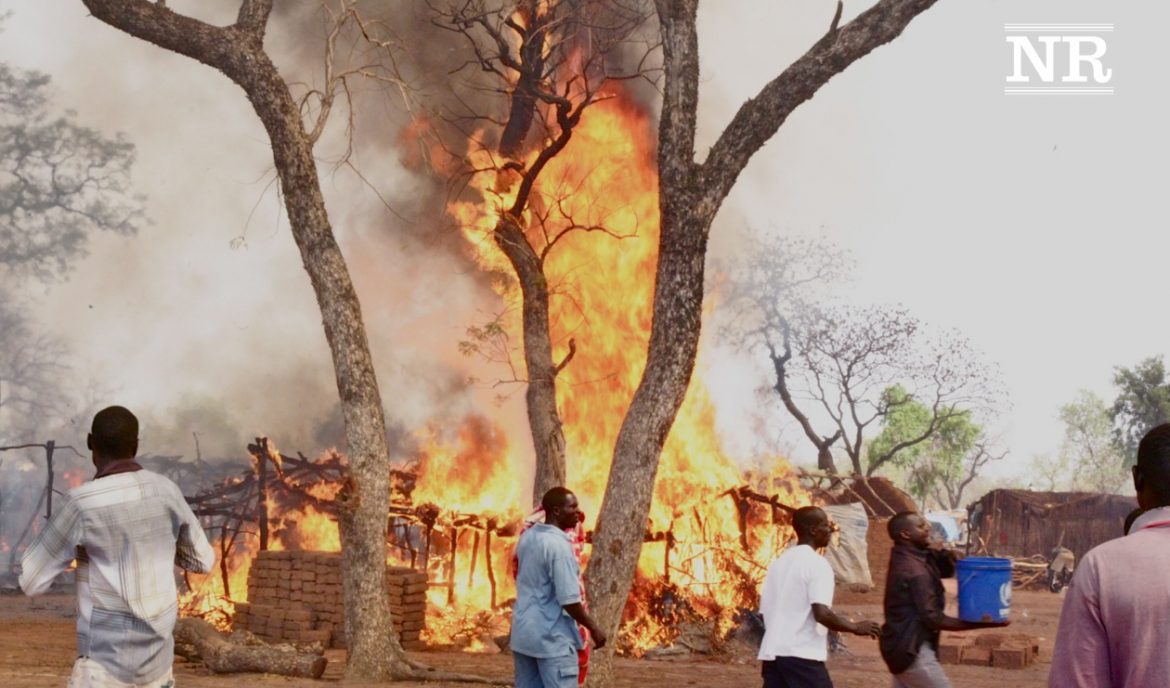A massive fire ripped through the marketplace at the Yida refugee camp Thursday, March 13, destroying more than 100 shops and 30 houses.
The fire began around 3:15pm near the center of the market. Residents and witnesses say the blaze started at a restaurant. During dry season, the many grass-thatched shops are at risk of catching fire from the open charcoal stoves used in the marketplace.
51-year-old Hamdan Tia – who serves as the Chief of Yida’s Daloka community – was injured in the blaze. Several witnesses said Tia was trying to put out the fire when a barrel of fuel in one of the burning shops exploded.
While there are no other reported casualties, the fire has gutted many of the shops refugees at Yida rely on for household items, school supplies and clothing. According to one humanitarian worker at the camp, most of the market’s fuel supplies were destroyed as well. Without the fuel, refugees will be unable to operate the grain mills used to grind the sorghum distributed by the World Food Program.
The market in Yida was established by refugees and members of the local community in late 2011 and grew alongside the camp. While not essential to humanitarian operations there, the market serves as the center of the ever-growing community in Yida.
“Within the market, men gather to discuss business in local tea shops and women buy local produce to supplement meals for their families,” said the humanitarian worker. “Without the local market, the men and women living in Yida are just refugees.”





